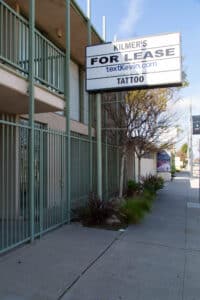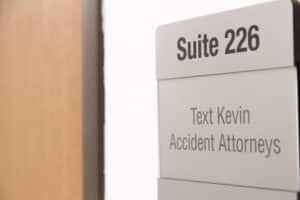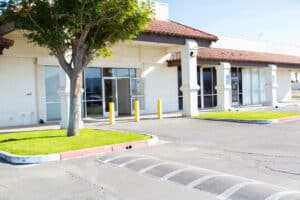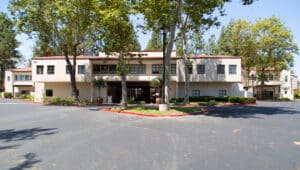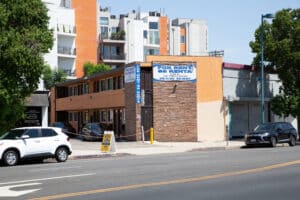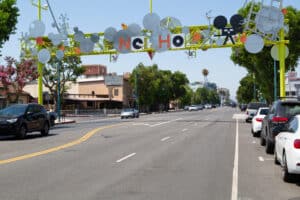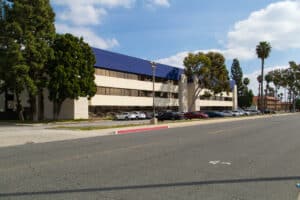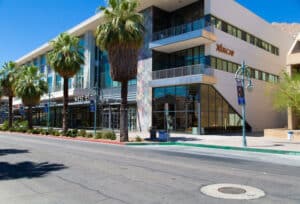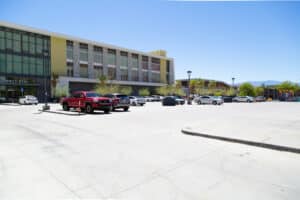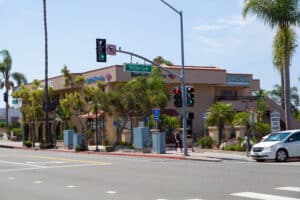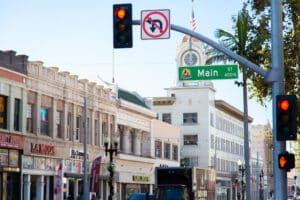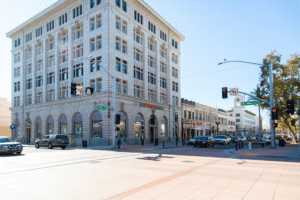It is common knowledge that it is illegal to operate a motor vehicle while under the influence of drugs or alcohol. What is not as well known is that under CVC 21200.5, it is also illegal to operate a bicycle or pedicab while under the influence of alcohol or drugs.
Many drivers in California are well aware that it is illegal to operate a motor vehicle while impaired by alcohol or drugs. Known as driving under the influence (DUI) when applied to driving a car, it is not as well known that it is also against the law to ride a bicycle while under the influence. California vehicle code 21200.5 outlines the elements of this infraction.
Codified in California Vehicle Code 21200.5, cycling under the influence (CUI), individuals who are riding a bicycle after they have been drinking can create a dangerous situation for other cyclists and motor vehicle drivers. If you have been involved in a collision with someone who was riding a bicycle under the influence, they may be responsible for causing the accident. Consulting an experienced California personal injury lawyer with Text Kevin Accident Attorneys can help you understand the consequences of an incident involving a cyclist who was under the influence.
Understanding CVC 21200.5 and its Implications for Drivers
Motorists must share the road with cyclists and both forms of transportation must adhere to California’s vehicle codes. To understand the implications and possibilities related to 21200.5 VC, we must first look at the language of the code and analyze how it applies to everyone who shares the road. CVC 21200.5 states:
21200.5.
Notwithstanding Section 21200, it is unlawful for any person to ride a bicycle upon a highway while under the influence of an alcoholic beverage or any drug, or under the combined influence of an alcoholic beverage and any drug. Any person arrested for a violation of this section may request to have a chemical test made of the person’s blood, breath, or urine for the purpose of determining the alcoholic or drug content of that person’s blood pursuant to Section 23612, and, if so requested, the arresting officer shall have the test performed. A conviction of a violation of this section shall be punished by a fine of not more than two hundred fifty dollars ($250). Violations of this section are subject to Section 13202.5.
While violation of 21200.5 VC does not carry penalties as serious as driving under the influence (DUI) under California Vehicle Code 23152, CUI is still considered a crime. Classified as a misdemeanor, cycling under the influence still carries punishments, although not as severe as DUI. It is also important to consider how an individual who is riding a bicycle while impaired by alcohol or drugs relates to other motorists with which they share the road.
Elements of Violating 21200.5 VC
The vast majority of automobile and truck drivers on the road throughout the state of California are well aware of the dangers and consequences of driving a motor vehicle under the influence of drugs or alcohol. Interestingly, many of those same drivers are not aware that it is also a crime to ride a bicycle while under the influence. While not as serious as a DUI, cycling under the influence (CUI) is still a crime at the misdemeanor level.
Individuals who have had their driver’s license suspended or revoked because of a DUI conviction, may choose to ride a bicycle to travel to work, the grocery store, or other locations that they normally would have driven to. If they have lost their license due to a DUI, they may also decide to ride their bicycle after consuming alcohol. If they are confronted by police who suspect they may be riding their bike while impaired, the following elements must be met for the officers to file a charge violating VC 21200.5.
First, law enforcement must be able to prove the individual was riding their bicycle, that the suspect was on a public roadway, and that the suspect was operating the bicycle while under the influence of alcohol, drugs, or a combination of both. However, 21200.5 VC does not specify a blood alcohol concentration (BAC) to qualify as impaired. Therefore, law enforcement can technically issue a violation of CVC 21200.5 if they test the suspect and show a BAC above .01.
Note
Examining CVC 21200 and Sharing the Road
California Vehicle Code 21200 explains the guidelines for bicycle riders and their responsibilities when riding on public roads. VC 21200 states that cyclists must add here to all the vehicle codes related to a motor vehicle. When utilizing public roads, bicycle riders must follow the same rules as drivers such as:
- Obeying traffic control devices as outlined in the California Driver’s Handbook
- Maintaining their positioning in bicycle lanes where available
- Observing the right of way rules under CVC 21800
- Obeying traffic signs such as stop signs under CVC 22450
- Following the four basic safety tips as outlined in the California Driver’s Handbook’s section on sharing the road
When bicycle riders ignore or disobey the rules of the road, disaster can strike at any moment. Violating 21200.5 by riding a bicycle while impaired by alcohol or drugs creates a dangerous and potentially deadly situation for both the rider and other motorists on the road. These situations can lead to cyclists or even car drivers suffering catastrophic injuries or even fatal consequences.
Tip
Dangers Posed by Impaired Cyclists
Cyclists who operate their bicycles while under the influence of alcohol or drugs can create many dangers for both themselves and those they share the road with. If a motor vehicle collides with an impaired cyclist because that cyclist was weaving all over the road, the bicycle rider will likely suffer devastating injuries. Likewise, motorists can also suffer injuries if they swerve to avoid an impaired bicycle rider and hit immobile objects like retaining walls or Jersey barriers.
When these situations occur, it is often difficult to determine who is predominately at fault for the accident. Consulting with your knowledgeable and experienced personal injury attorney with Text Kevin Accident Attorneys can help investigate the circumstances surrounding a motor vehicle versus a bicycle accident. Some people may jump to the conclusion that the car driver was at fault for the accident, but through an extensive investigation by law enforcement and your lawyer, it may be discovered that the bicycle rider was under the influence of alcohol, was unable to maintain proper control of their cycle, and their impairment caused the accident.
If an impaired bicycle rider is unable to maintain their bicycle properly, they may even crash without another vehicle being involved. Cyclists who are under the influence of drugs or alcohol may be unable to properly judge stopping distances, have impaired depth perception, or blurred vision that results in the rider colliding with inanimate objects. Without the protection that a car offers, like the steel body, seatbelts, and airbags, cyclists are at increased risk for serious injuries like paralysis or traumatic brain injuries.
Pro Tip
Damages Related to an Accident With an Impaired Cyclist
Colliding with an alcohol or drug-impaired cyclist could result in serious damages for both parties. If your accident occurred with an individual that you suspect was under the influence of drugs or alcohol, your dedicated car accident attorney with Text Kevin Accident Attorneys will put forth every effort to determine the cyclist’s disposition regarding sobriety. An alcohol-impaired bicycle rider may have been the cause of your accident, which could leave them liable for the damages you suffered.
Cyclists who cause accidents are potentially just as liable for causing the collision as another motor vehicle driver. When this is the case for your car accident, the bicycle rider could be responsible for all of the economic and non-economic damages you have suffered. Your lawyer will work tirelessly to prove the impaired cyclist is more than likely responsible for causing the collision based on the legal standard of the preponderance of the evidence as described by California’s Civil Jury Instructions Resource Center’s Civil Plain English Comparison under BAJI 2.60.
Economic Damages
When we can prove that the impaired cyclist was responsible for the accident you were involved in, we may be able to file a lawsuit to seek compensation for the damages you have suffered. Among the damages you may seek include your economic damages that can be calculated due to their clearly defined dollar values. Medical expenses, repair costs, and lost wages are a few examples of your economic damages.
Non-Economic Damages
Experiencing a motor vehicle accident with a cyclist who is under the influence of alcohol or drugs can be a traumatic event. Other than your easily quantifiable, economic damages, you can also seek compensation for your subjective, non-economic damages. These can include mental and emotional distress, loss of relationships, and feelings of fear or shame.
Punitive Damages
Outlined in California Civil Code Section 3294 and also known as exemplary damages, punitive damages are rarely awarded in personal injury cases. If your collision occurred with an alcohol-impaired cyclist, these damages may be unlikely unless we can prove that the bicycle rider’s actions were grossly negligent, malicious, or intentional. However, because of the dangerous and reckless behavior associated with operating any type of machinery or form of transportation while under the influence of drugs or alcohol, punitive damages may apply to send a message to the surrounding community that one should never ride a bicycle while intoxicated.
CVC 21200.5 FAQs
What are the penalties for riding a bicycle while under the influence?
What other offenses can relate to CVC 21200.5?
While CVC 21200.5 carries its own penalties as a misdemeanor criminal offense, it may also leave the offender open to other charges. Because most bicycle riding takes place on public roads or designated bicycle paths, violations of 21200.5 VC may also be subject to charges of public intoxication - PC 647f. A charge of public intoxication could result in a 72-hour hold for observation.
What are potential defenses for a violation of VC 21200.5?
Can a violation of CVC 21200.5 be expunged from one’s criminal record?
Connect With Your Top-Rated Personal Injury Lawyer in California
If you have suffered the traumatic event of being involved in a motor vehicle accident involving an alcohol-impaired bicycle rider, you do have options for legal recourse. An individual who made the poor choice of riding a bicycle while intoxicated should not cost you the financial hardships associated with an accident that was not your fault. Rebuild your life with the help of your top-rated California car accident lawyer.
Text Kevin Accident Attorneys put their clients first and have won millions for accident victims. Do not hesitate to seek legal assistance to protect yourself and your future. Complete our secure contact form now or call our offices to schedule your 100% free, no-obligation consultation as soon as today.



































